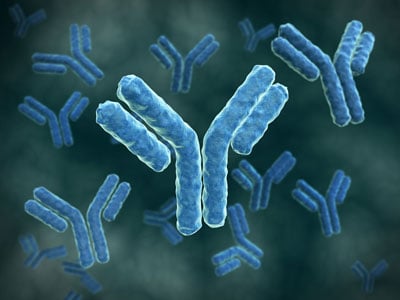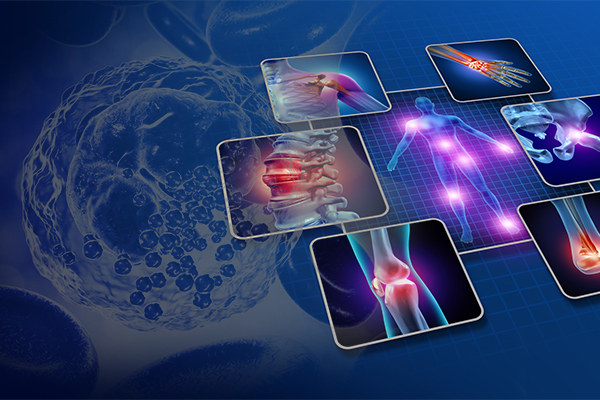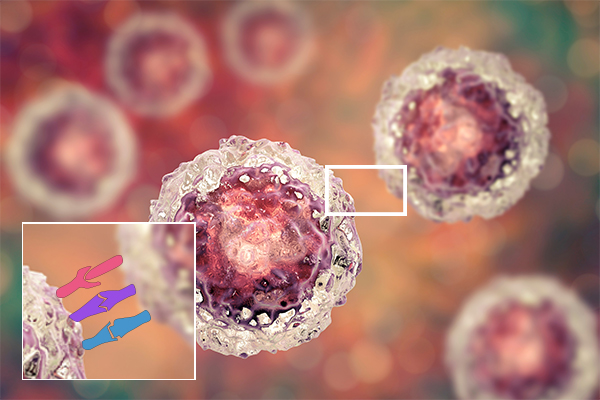A common experimental strategy in studying the effects of a specific protein in cells or organisms is to remove it. One can determine the physiological outcomes in the absence of that protein to ascertain its relative importance in maintaining normal functions, or in some cases, to note that it is dispensable or redundant and might have a backup within the cell to take up the slack. Some targeted techniques include RNA interference (RNAi) and CRISPR-based gene editing, and in many cases, it is possible to generate knockout cell lines or even organisms, like mice, that cannot express a specific protein. But when those strategies are not feasible for the experiment at hand, what is one to do?
Trim and Proper: A Nifty Method for Targeted Protein Degradation
Controlling Monkeypox Spread: Protecting Against the Next Pandemic
It seems like decades since the SARS-CoV-2 pandemic shut down the world economically and socially, and even now we are not fully out of the woods. The COVID-19 coronavirus continues to persist, hovering on the cusp of becoming an endemic disease after having caused over one million deaths in the United States alone out of over six million deaths worldwide since the first reported cases in 2019. Although the various coronavirus vaccines have conferred some level of herd immunity across the globe, the danger of mutations causing variants that might escape vaccine protection is real, so continued vigilance and best practices are key to returning to normalcy. Perhaps our resolve as a global community and as a species will be tested in short order as the monkeypox outbreaks surge.
In November 2021 we hosted a Lab Member of the Year contest. This contest allowed for various members of the research community to be highlighted for their contributions to their respective labs. At the end of it all Dr. Francesc X. "Xavi" Ruiz Figueras, an assistant research professor at Rutgers' Center for Advanced Biotechnology and Medicine, took first place and became ABclonal's Lab Member of the Year.
Dr. Ruiz Figueras is a highly skilled scientist who has made significant scientific contributions to the fields of enzymology and structural biology studying the structure and function of human and viral proteins, especially HIV-1 reverse transcriptase and human aldo-keto reductases, with an emphasis on catalysis and inhibition for drug discovery1. In his spare time he enjoys playing basketball, reading, and spending time with his family. Currently, he is reading a book about philosophy, which he feels has applications to living during these pandemic times. He believes we should take whatever the life lessons we can take from this book in order to hopefully be more resilient.
We sat down with Dr. Ruiz to discuss his lab life at Rutgers, his current research, and what he is looking forward to researching in the future.
The 3CLpro as a Potential Target for the Intervention of COVID-19
The coronavirus disease 2019 (COVID-19) pandemic caused by SARS-CoV-2 has raised global health concerns. As case numbers continue to climb, there is an urgent need for an active drugs against SARS-CoV-2. The development of new drugs is time-consuming and costly, and the safety of new drugs is paramount. Therefore, the strategy of drug repurposing represents one of the fastest approaches to have an active drug to fight SARS-CoV-2 during the COVID-19 pandemic.
As a matter of fact, in silico repurposing approaches have found increasing popularity during the COVID-19 epidemic [1], especially with the great breakthrough achieved using 3CLpro as a target to screen drugs. By the end of 2021, the FDA has authorized the first oral antiviral drug Paxlovid, produced by Pfizer, to treat COVID-19. Due to that much of the scientific and clinical work on drug repurposing or drug screening against SARS-CoV-2 or COVID-19 is still ongoing, in this blog we will review the latest progress on the potential targets, including 3CLpro, for the drug discovery or intervention of COVID-19.
Interleukins are a group of small signaling molecules, and a type of cytokine. They play a vital role in the body’s immune response by activating and deactivating immune cells. Recently, interleukins have gained visibility as a target to help treat COVID-19, and the WHO has recommended giving IL-6 inhibitors to patients with severe cases. Additionally, because of its widespread impact on the body, the interleukin family has gained popularity as drug targets over the last few years.
CD antigens have played a significant role in both diagnosis and treatment for several diseases ranging from autoimmune diseases to cancer. CD antigens are often used as drug targets in drug discovery and as biomarkers in diagnosis because they are both highly specific and are located at the surface of the cells to target different to identify and investigate cell surface molecules.








